Are you ready to upgrade your cooking? Brace yourself for an exploration of a rich history, unique characteristics, and mouthwatering flavors in our Native Vanilla Beans review.
These exquisite beans, grown in specific regions using traditional methods, boast a distinct appearance and aroma that will leave your senses craving more.
From culinary delights to health benefits, you’ll discover why native vanilla beans are a true flavor upgrade.
Join us as we delve into the wonders of these remarkable beans and embrace the importance of sustainable practices in their cultivation.
Let’s dive in!
Key Takeaways
- Native vanilla beans, rooted in Central America and esteemed by the Mayans, boast a unique terroir that shapes their appearance, aroma, and flavor.
- Their aroma and flavor, offering sweet, floral, creamy, woody, and fruity notes, create a symphony in every bite or sip.
- Culinary uses involve enhancing desserts, naturally reducing sugar, and providing health benefits like antioxidants and essential minerals.
- Meticulously designed packaging ensures freshness with an airtight seal, light-blocking material, moisture control, and informative labeling.
- While offering an indulgent culinary experience and supporting sustainability, challenges like climate change and unsustainable practices threaten their production. Choosing native vanilla beans contributes to their preservation.
Origin of Native Vanilla Beans
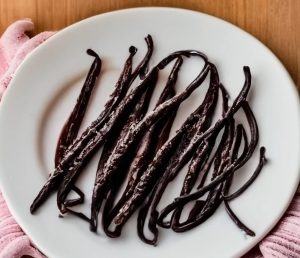
Did you know that vanilla beans have a rich historical significance and are grown in specific regions with unique terroir? These beans have been treasured for centuries, with their origins rooted deep in the tropical rainforests of Central America.
The Mayans were the first to cultivate and use vanilla, considering it a sacred spice that brought pleasure and happiness. As time went on, the knowledge of vanilla cultivation spread to other Indigenous communities across Mexico and Guatemala.
The unique terroir of these regions plays a crucial role in shaping the flavor profile of native vanilla beans. The volcanic soils, abundant rainfall, and warm temperatures create the perfect conditions for optimal growth. This combination results in beans that are plump, moist, and bursting with intense aromas.
When you use native vanilla beans in your cooking or baking, you can truly appreciate their distinctive qualities. The aroma is intoxicating—a delicate balance of floral notes with hints of caramel and chocolate. And when it comes to flavor, nothing compares to the richness and complexity that native vanilla beans bring to your dishes.
Not only do these beans add incredible depth to your culinary creations, but they also offer various health benefits. They contain antioxidants that help fight inflammation and boost your immune system. Additionally, they provide essential minerals like potassium and manganese.
Unfortunately, the production of native vanilla beans faces numerous challenges today. Climate change, deforestation, and unsustainable farming practices threaten their existence. That’s why it’s crucial for us as consumers to support sustainable agriculture initiatives and choose products made from responsibly sourced vanilla.
Aroma and Flavor Profile
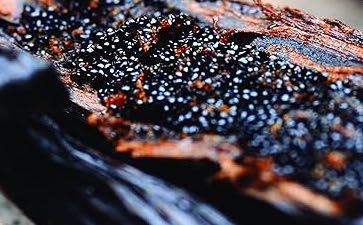
The aroma and flavor profile of these unique beans will surely impress your taste buds. Native vanilla beans offer a sensory experience like no other with their enticing fragrance and rich, complex flavors.
When you open a package of these beans, the sweet and floral scent instantly fills the air, transporting you to exotic locations where they are grown. As you take a closer look at the beans, you’ll notice their dark brown color and plump appearance, indicating their high quality.
Now let’s dive into the flavor profile of native vanilla beans. The table below provides an overview of the key characteristics that make them so special:
| Flavor Profile | Description |
|---|---|
| Sweet | A natural sweetness that is delicate yet lingers on your palate. |
| Creamy | Smooth and velvety texture that adds richness to any dish or dessert. |
| Floral | Subtle hints of flowers like orchids and jasmine create an enchanting taste. |
| Woody | A touch of earthiness that adds depth to the overall flavor profile. |
| Fruity | Notes of dried fruit such as raisins or prunes add a delightful complexity. |
These distinct flavors work harmoniously together, creating a symphony in every bite or sip infused with native vanilla beans. Whether you’re using them in baking, cooking, or making beverages, their aromatic presence elevates any dish to new heights.
Indulging in the aroma and flavor of native vanilla beans is not just about satisfying your taste buds; it’s also about appreciating the craftsmanship behind each bean and supporting sustainable farming practices. By choosing native vanilla beans, you’re not only treating yourself to an exceptional culinary experience but also contributing to the preservation of this precious ingredient for generations to come.
Culinary Uses and Health Benefits of Native Vanilla Beans
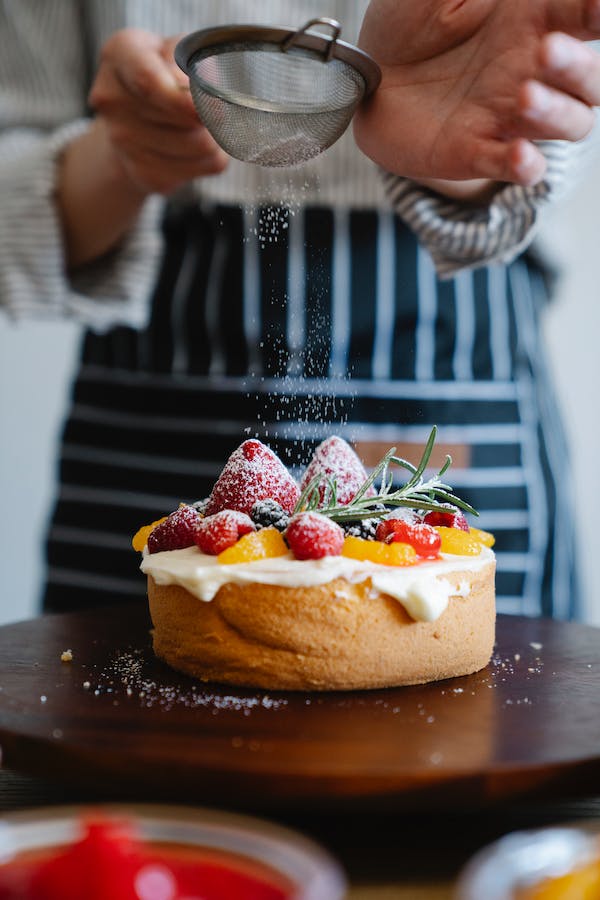

Indulge in the delicious culinary uses and reap the health benefits of using these extraordinary beans in your cooking and baking. Native vanilla beans offer a wide range of flavors and aromas that can elevate any dish. Here are four reasons why you should incorporate them into your recipes:
Intense and Complex Flavor
The flavor of native vanilla beans is unparalleled. It has a rich, sweet, and creamy taste with hints of floral notes. When used in desserts like custards, cakes, or ice creams, it adds depth and complexity to the final product.
Natural Sweetness
Native vanilla beans have a natural sweetness that allows you to reduce the amount of sugar in your dishes without compromising on taste. This makes them a perfect addition to healthier recipes or for those looking to cut back on refined sugars.
Aromatic Delight
The aroma of native vanilla beans is intoxicatingly pleasant. Just opening a jar filled with these beans fills the air with a warm and comforting scent that can instantly uplift your mood while cooking.



Konnichiwa! (Hello!) I'm Pat Tokuyama, a Japanese tofu cookbook author, who travels for music, food, and adventure. If you like Japanese tea, checkout some of the newestorganic japanese tea, matcha bowls and noren and more!
** Curious about the Plant Based Japanese Cooking Club? ** Learn more here!
Health Benefits
Besides their incredible flavor profile, native vanilla beans also offer various health benefits. They are rich in antioxidants, which help fight against free radicals in the body. Additionally, they contain trace minerals like potassium, magnesium, calcium, and zinc that contribute to good overall health.
So go ahead and explore the culinary world with native vanilla beans! Their unique flavors will take your dishes from ordinary to extraordinary while providing you with some added health benefits along the way. Get ready for an indulgent experience that will satisfy both your taste buds and your well-being!
Packaging of Native Vanilla Beans


When purchasing, you’ll find that the packaging of these special beans ensures their freshness and preserves their distinct aroma and flavor. Native vanilla beans are carefully packaged to protect their delicate nature and maintain their quality until they reach your kitchen. Here’s why the packaging of native vanilla beans is worth appreciating:
- Airtight Seal: The packaging is designed to create an airtight seal, preventing any air from entering or escaping. This helps preserve the freshness of the beans and lock in their rich aroma.
- Light-Blocking Material: Native vanilla beans are sensitive to light exposure, which can cause degradation of their flavor compounds. The packaging material used is specifically chosen to block out harmful UV rays, ensuring that the beans remain flavorful and aromatic.
- Moisture Control: Excessive moisture can lead to mold growth and spoilage of the beans. The packaging includes moisture-absorbing packets or materials that help regulate humidity levels, keeping the beans dry and free from damage.
- Informational Labeling: The packaging often includes detailed information about the origin, variety, and grade of the vanilla beans. This allows you to make an informed decision while purchasing and adds value by providing insights into the unique qualities of each bean.
By paying attention to every detail in the packaging process, producers ensure that you receive high-quality native vanilla beans that will enhance your culinary creations with their exquisite taste and aroma.
Pros and Cons
 Native Vanilla Organic Madagascar Vanilla Beans
Native Vanilla Organic Madagascar Vanilla Beans - Native Vanilla Beans offer exceptional taste and are perfect for enhancing desserts.
- Supports fair trade and environmentally friendly practices.
- Hand-selected and vacuum-sealed for freshness.
- Ideal for various culinary applications.
- Convenient storage requirements, no refrigeration is needed.
- Premium price compared to lower-grade options.
- May not always be readily accessible in desired quantities.
- Specific storage requirements may not suit everyone.
Conclusion
In conclusion, you need to appreciate the unique qualities and promote the sustainability of these extraordinary beans. Native vanilla beans possess a history that reaches back centuries, and they are cultivated in specific regions with distinct terroir – giving them their special charm.
Their appearance is striking, with long, slender pods that house an abundance of tiny black seeds. As soon as you open a pod, the intoxicating aroma fills the air, transporting you to a realm of sweet indulgence. And when you taste native vanilla beans, prepare yourself for a symphony of flavors – floral notes mingling with hints of caramel and chocolate.
But it’s not just their sensory appeal that makes native vanilla beans so remarkable; they also offer numerous health benefits. From relieving stress and improving digestion to boosting mood and enhancing skin health, these little beans pack quite a punch. They are truly nature’s gift to us.
So next time you reach for that bottle of imitation vanilla extract on the supermarket shelf, pause for a moment and consider the story behind those tiny black seeds. Choose native vanilla beans instead – not only will your culinary creations be elevated to new heights but by doing so, you’ll be playing your part in preserving this wonderful treasure for future generations.


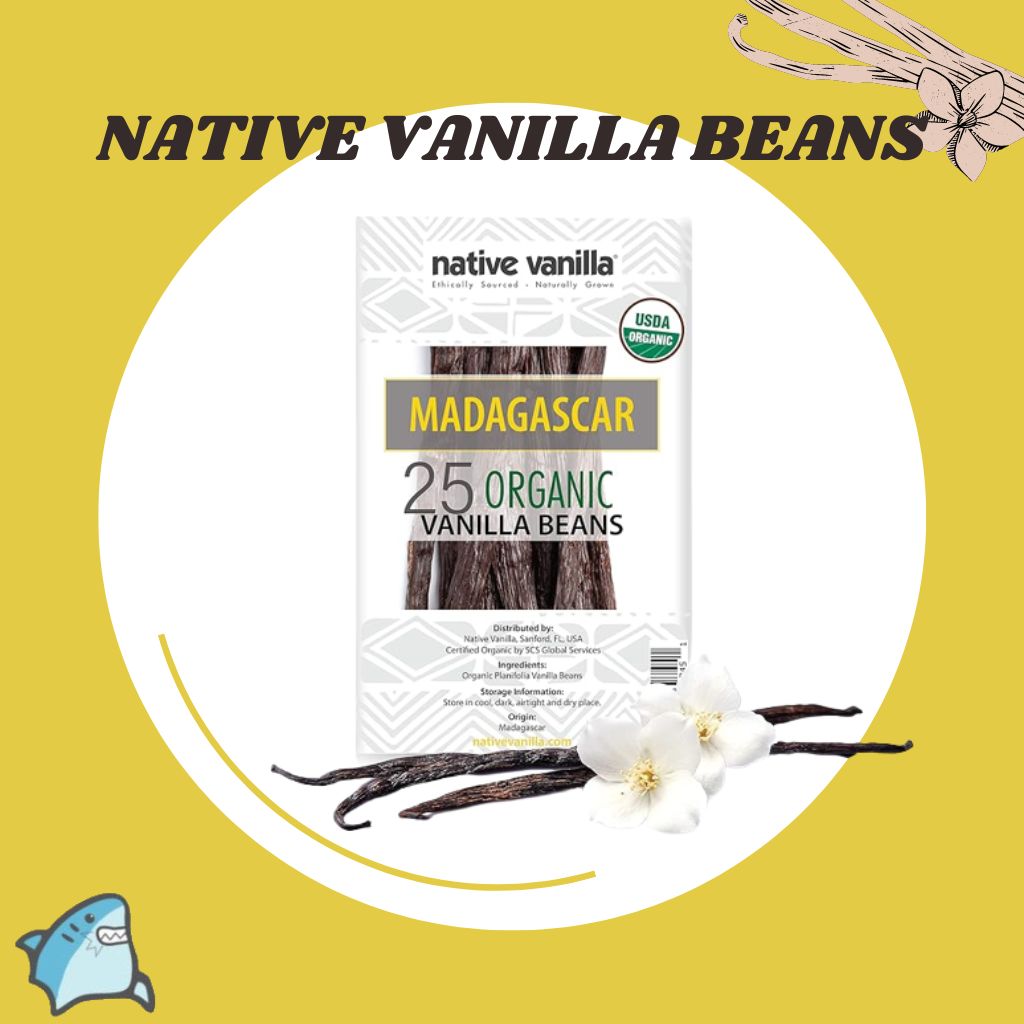

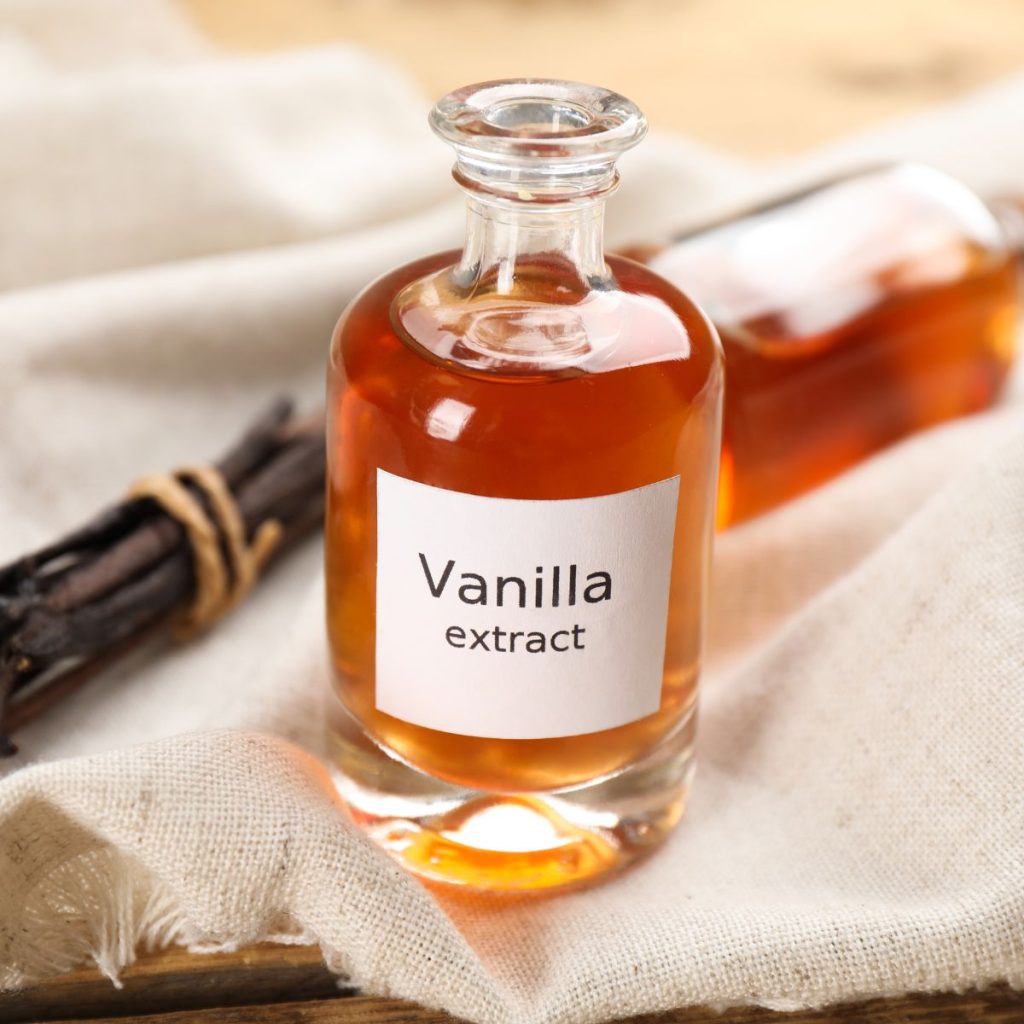

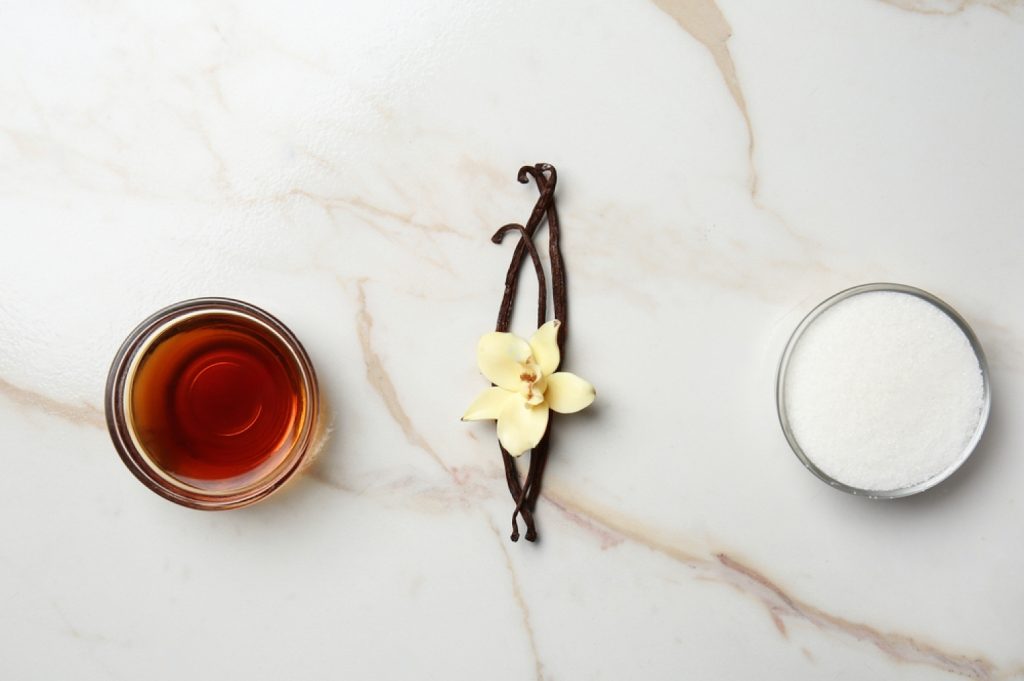
Konnichiwa! (Hello!) I'm Pat Tokuyama, a Japanese tofu cookbook author, who travels for music, food, and adventure. If you like Japanese tea, checkout some of the newestorganic japanese tea, matcha bowls and noren and more!
** Curious about the Plant Based Japanese Cooking Club? ** Learn more here!